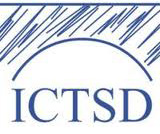 [ICTSD, Link] The establishment of the WTO Agreement on TRIPS (Trade Related Aspects of Intellectual Property Rights) and the proliferation of plurilateral, bilateral and regional agreements have significantly contributed to the increasing complexities of the intellectual property system. The emergence of new actors, reflecting conflicting expectations and the adoption of new trade agreements that often exceed the standards set by the TRIPS agreement, have resulted in a new density of rules that have further fragmented the international system. These developments have unavoidably called for further analysis by academics and stakeholders.
[ICTSD, Link] The establishment of the WTO Agreement on TRIPS (Trade Related Aspects of Intellectual Property Rights) and the proliferation of plurilateral, bilateral and regional agreements have significantly contributed to the increasing complexities of the intellectual property system. The emergence of new actors, reflecting conflicting expectations and the adoption of new trade agreements that often exceed the standards set by the TRIPS agreement, have resulted in a new density of rules that have further fragmented the international system. These developments have unavoidably called for further analysis by academics and stakeholders.
Rethinking International Intellectual Property Law: What Institutional Environment for the Development and Enforcement of IP Law?, offers a collection of papers dealing with the institutional environment for the development and enforcement of intellectual property law. This issue seeks to identify key developments and trends. It brings diverse voices together to address key questions of international intellectual property law which increasingly play a central role in economic, social and ethical debates at a global level
The authors in this volume [Christophe Geiger, Professor of the University of Strasbourg; Carlos Correa, Professor of the University of Buenos Aires; Craig Nard, Professor of Case Western Reserve University; Daniel Gervais, Professor of Vanderbilt University; Xavier Seuba, Senior Lecturer of the University of Strasbourg; Pedro Roffe, Senior Associate at the International Centre for Trade and Sustainable Development], introduce four overriding themes that characterise contemporary intellectual property law. Three of them cut across most of the contributions, namely the question of forum shifting, the evolving role of multilateral organizations such as WTO and WIPO and the continuous but evolving nature of the North-South divide. The fourth theme delves into the role of the judiciary in addressing complex and contemporary patent related questions.




